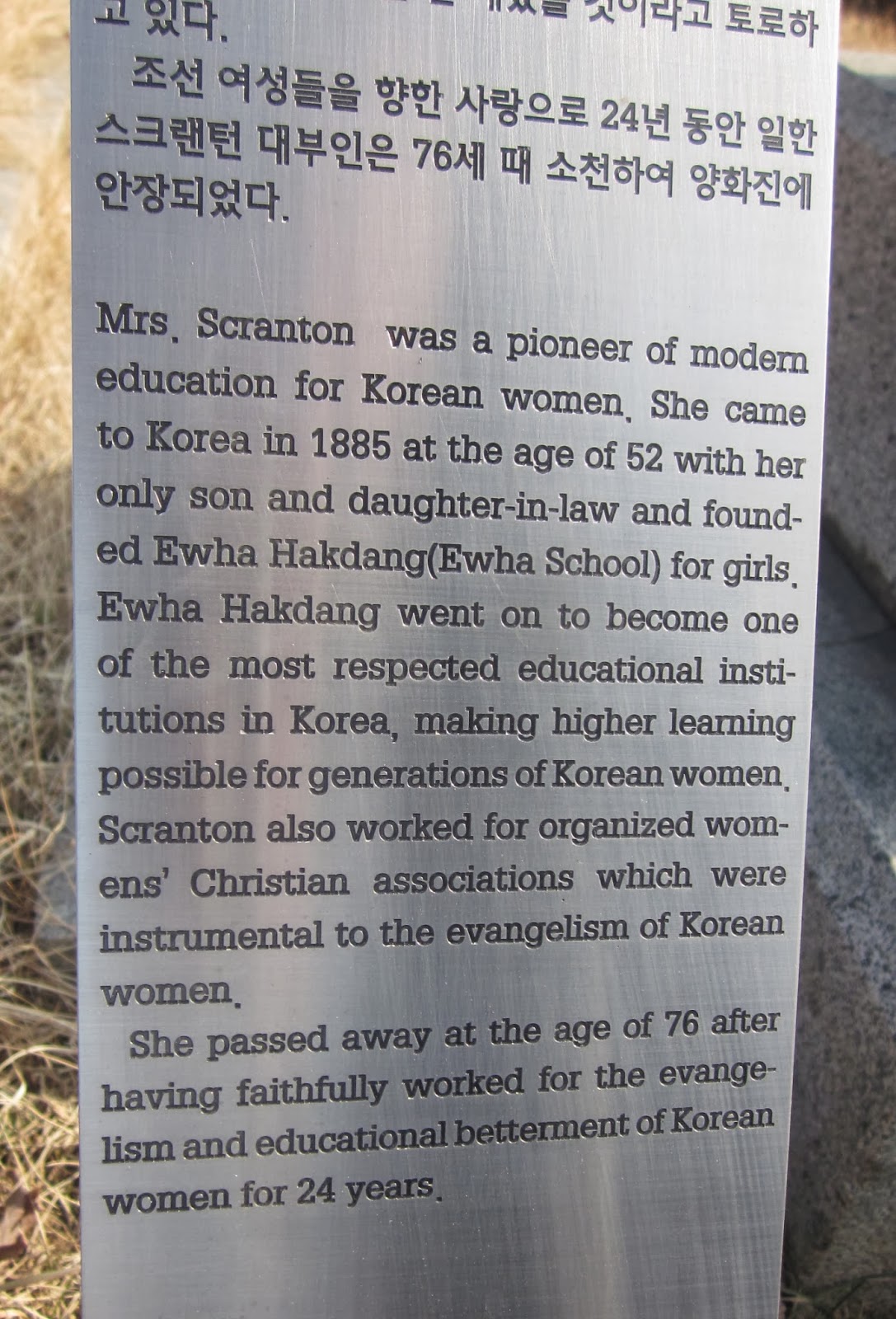 |
| The Yanghwajin Cemetary in Seoul, Korea, was designated in 1890 as a site for burying foreign missionaries by Emperor Gwangmu, the first Emperor of the Korean Empire. [Photo by Matthew Smith, used under the Creative Commons Attribution-Share Alike 3.0 Unported license.] |
In the secularist view of development today, Christianity is not always seen as a positive contributor to the cause. That’s because it is often stereotyped as “institutional” rather than community-oriented, and relegated to “private inspiration” rather than seen as a player in public life.
The history of Korea, however, tells a different story.
In the late 19th Century, Korea was mostly
illiterate, without roads or railways, power or sewer systems. But beginning in 1884, a movement of Christian missionaries took place, mainly coming from the USA, England, South Africa and Canada.
These missionaries played a significant role in
shaping Korean history. From the hundreds of schools these missionaries established, future leaders of
Korea came.
A couple of years ago, I was privileged to visit the Yanghwajin Cemetery in Seoul. Among the 376 graves of foreigners, 145 belong to missionaries and their families. A brochure for the
cemetery said: “Abandoning promising
careers back home, they came to share the light of the Gospel with ‘Corea’
which was then unknown. The missionaries profoundly influenced Korean society,
not only by establishing hospitals and schools, but by affecting its intangible
values, thus contributing to the abolition of the class hierarchy in old Korea.”
Elmer L. Towns and Douglas Porter, in their book, The Ten Greatest Revivals Ever, report that the missionaries required adult converts to
learn to read Korean before admitting them to church membership. To
distinguish Christians from collaborators with the Japanese who later invaded and occupied Korea, "the patriots required Christians to
recite chapters from the Bible to prove they were Christians. The result
was a 100 percent literacy rate among Christians in a largely
illiterate nation. Their ability to read made Christians the natural
leaders of the Korean society."
Christianity “caught on” in Korea. The Koreans took to the Bible like
kids in a candy store. I’m not sure of all the reasons for this, except to say it
was a move of the Holy Spirit, beyond human orchestration. Men and women of God left places of greater comfort to come to a far off land in need, and as a result, they discipled a nation.
Now you know "the rest of the story."
Now you know "the rest of the story."
 |
| H. B. Hulbert is said to have "loved Korea more than Koreans did." |
 |
| A pioneer of Korean Christian education was William M. Baird. The school he started in his living room grew into a university. |






